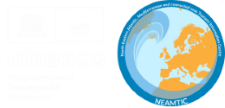Third Multi-Hazard Early Warning Conference: Scaling Up action: Every Person on Earth Protected by Early Warning Systems within Five Years
The Third Multi-Hazard Early Warning Conference (MHEWCIII) was held in Bali, Indonesia from 23 to 24 May at the Bali International Convention Centre (BICC) as a preparatory event for the Global Platform for Disaster Risk Reduction. Its theme was “From Stock Take to Scaling Actions on Target G: Accelerating the Knowledge and Practice of Early Warning Systems for Risk-Informed Resilience". An Organizing Committee composed of committed partners drawn from the International Network, including IOC UNESCO for Multi-Hazard Early Warning System (IN-MHEWS) planned and organized the MHEWS-III Conference. Denis Chang Seng, IOC UNESCO Programme Specialist delivered a keynote presentation on Tsunami Early Warning and Mitigation System: Progress, Gaps and Opportunities in the opening session on the State of Play on Early Warning Systems: Progress on target G – Early Warning Access: Regional and Thematic Expert Perspective. IOC UNESCO and WMO also co-organized a session. Are our early warning systems effective? The MHEWS-III conference welcomed the UN's new action and ambitious challenge to ensure every person on Earth is protected by Early Warning Systems within five years and WMO to lead this effort and present an action plan to achieve this goal at the next UN climate conference, later this year in Egypt.

IOC UNESCO and WMO also co-organized a session on 'Are our early warning systems effective? The session panelists emphasized that the effectiveness of EWS is ultimately measured and valued if it saves lives, reduces the impact on livelihood, as well as minimizes disruptions to critical services. The session also discussed best practices, needs, challenges, and limitations as well as the new approaches and methodologies to measure the effectiveness of MHEWS. Effective EWS should consider multiple hazards, cascading and concurrent events, vulnerabilities, and capacities of the communities at risk, and should be gender-sensitive and inclusive. The session highlighted that the effectiveness of MHEWS is challenged by the rapidly changing risk landscape driven by climate change and business as usual development pathways. The recent disasters and COVID-19 pandemic have demonstrated not only the challenges but also the limitations of existing MHEWS. These costly hazards, overlapping with other biological hazards such as pandemics, are setting back development gains. Effective EWS integrate research and policy, enables good governance, public engagement and decision making, and is flexible to adapt to the changing risk landscape.
Priorities identified for scaling-up action within the thematic area include: strengthening coordination and collaboration across all stakeholders by creating support mechanisms to overcome silos and territorialism, developing MHEWS that address unique vulnerabilities and needs of different groups and have anticipatory actions that range from local to international scale, and developing warnings that is rooted in long-term social processes and factors local and indigenous knowledge systems.
Denis Chang Seng also participated as a panellist in another session on Innovation: The Next Generation of Forecasting and Warning Systems.
Mr Cyrille Honoré, Director, Disaster Risk Reduction and Public Services Branch, Services Department, World Meteorological Organization presented the MHEWS-III Conference outcome statement at the GPDRR session on Early Warning and Early Action (EWEA)on the 27 May.
The aims of the MHEWS-III Conference were
- to 'Take stock' of progress in the implementation of Target G of the Sendai Framework.
- Report on the latest trends in MHEWS design, results, and impact and share knowledge, lessons learned, and emerging examples of good practices as captured in the joint UN Words into Action (WiA) on MHEWS publication
- Identify gaps and challenges in practice, policy and scienceto be addressed in future work
- Promote coordination and collaboration among MHEWS stakeholders and identify synergies with other initiatives and partnerships on early warning and action
More than 2000 participants registered for the hybrid event which was officially opened by WMO Secretary-General Prof. Petteri Taalas, UN Special Representative for Disaster Risk Reduction Mami Mizutori and Prof. Dwikorita Karnawati, head of the Indonesian weather agency, BMKG.









































